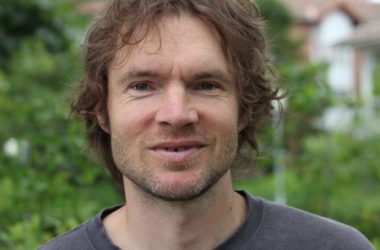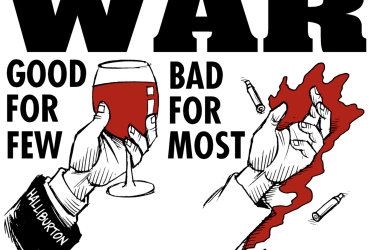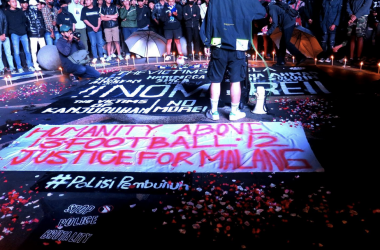A review of Nicholas Apoifis’s Anarchy in Athens: An Ethnography of Militancy, Emotions and Violence (Manchester: Manchester University Press, 2017). Originally published on Alpine Anarchist Productions.
In his Ph.D. thesis Anarchy in Athens: An Ethnography of Militancy, Emotions and Violence, the Australian sociologist Nicholas Apoifis has taken on one of the hottest topics in recent anarchist history, namely the anarchist movement of the Greek capital.
Apoifis mentions that he originally wanted to conduct research in two more Greek cities, but that “because of the sheer scale of the movement in Athens, I limited my research to this explosive city” (p. 11). As far as the international perception of contemporary Greek anarchism is concerned, this makes little difference, as it focuses almost exclusively on what is happening in Athens anyway – in particular, in the Exarcheia neighborhood, which features prominently in Apoifis’s book.
In a sense, Anarchy in Athens turns three books into one: there is the academic discussion of social movement theory; there is the history of anarchism in Greece, starting with the 1860s; and there is the “militant ethnography” of Athens’s contemporary anarchist milieu, based on participatory observation and interviews conducted during two visits in 2011 and 2013, respectively.
In the introduction to the book, Apoifis admits that he struggled to bring these different parts together. Indeed, the book is not always easy to read, as both style and focus shift greatly. Personally, I might have preferred a stricter distinction between the chapters satisfying academic requirements, the historical accounts, and the personal reports from the ground, but these decisions are hard to make.
The methodological and sociological discussions will be of most interest to academics of relevant fields. The historical accounts will be appreciated by anyone who (apparently, unlike most of Athens’s contemporary anarchists) is interested in anarchist history. Most readers, however (including the ones visiting this site), will be primarily interested in the portrayal of the current anarchist milieu.
Apoifis has talked to many people, stayed in various squats, and participated in numerous protests. He has a solid background in anarchist theory, experience as an activist, and – as a “third-generation Greek-Australian” (p. 47) – a good command of the Greek language. These aspects combined form a solid ground for researching contemporary Greek anarchism.
Interestingly enough, the results of Apoifis’s research confirm common perceptions of the milieu: little interest in anarchist history and theory, strong insurrectional and anti-organizational tendencies, and plenty of street-fighting bravado. Apoifis makes sure to reference the “prefigurative politics” that the anarchists of Athens also engage in, including “feeding the hungry and poor, protecting migrants from fascist beatings and trying to carve out an autonomous political, social and cultural space”. Yet, he concedes that “militant protest … actions are … key elements in the ongoing construction and reconstruction of Athenian anarchist and anti-authoritarian collective identity” (p. 2).
This is not necessarily a problem. The collective identity formed in this way suffices (obviously) to create a subcultural space that many people experience as an escape from the daily grind; a space to experiment with social, political, and economic alternatives; and a space from where to strike against the powers of oppression. None of this can be taken from the anarchists of Athens, and Apoifis’s book convincingly illustrates why they attract dissatisfied locals, “anarcha-tourists”, and radical researches alike.
Yet, there is another side to the coin. With convictions bordering on a rejection of the political altogether (“I don’t care about publicity”, says one of the anarchist interviewed, p. 123), it is fair to ask what the subculture can do for the public at large. It might not be a coincidence that “the world’s most militant anarchist and anti-authoritarian movement” (p. 1) seemed unable to decidedly intervene “in the midst of a profound economic, social and political crisis” (p. 6). But it is exactly the ability to decidedly intervene in such a crisis that reveals a movement’s revolutionary potential.
In this context, the disinterest in anarchist history, which is a recurring theme in the description of the Athens anarchists, can indeed be problematic. Apoifis writes: “I had a very difficult time finding anarchists in the street-protests of Athens who had an in-depth knowledge of pre-World War II Greek anarchism. Initially, incorrectly and probably judgementally, I perceived this as a sad weakness of the movement – to be so out of touch with their rich and vibrant history.” (82) While such a perception might indeed be “judgemental”, I have not found anything in the book that would make it appear “incorrect”. Rather the opposite. If the form of anarchism that Apoifis describes is indeed “leading the way”, as one of his interviewees contends (p. 143), I’m afraid I can’t get terribly excited.
Finally, a unity based on “a shared commitment to a particular form of militant street resistance”, “the ritualised performative violence of the street-protest”, and “phenomena like rituals, encoded language, symbols and emotional interactions between movement actors” (p. 152) is nothing specifically progressive. The same can be said for football firms, motorcycle clubs, or medieval reenactment societies. This doesn’t mean to liken these groups to the anarchists of Athens. But it seems important to stress that the ways in which collective identities form don’t say much about the political values and principles involved. I feel that Apoifis could have explored this in more depth. What makes certain forms of collective identify based on the mentioned practices progressive and others not?
Readers should not be discouraged by my reservations. Anarchy in Athens is an important book about a recent expression of anarchism that we should all be aware of and study. Highly recommended. (June 2017)
More blogs from Gabriel | Back to Gabriel Kuhn’s Author Page





